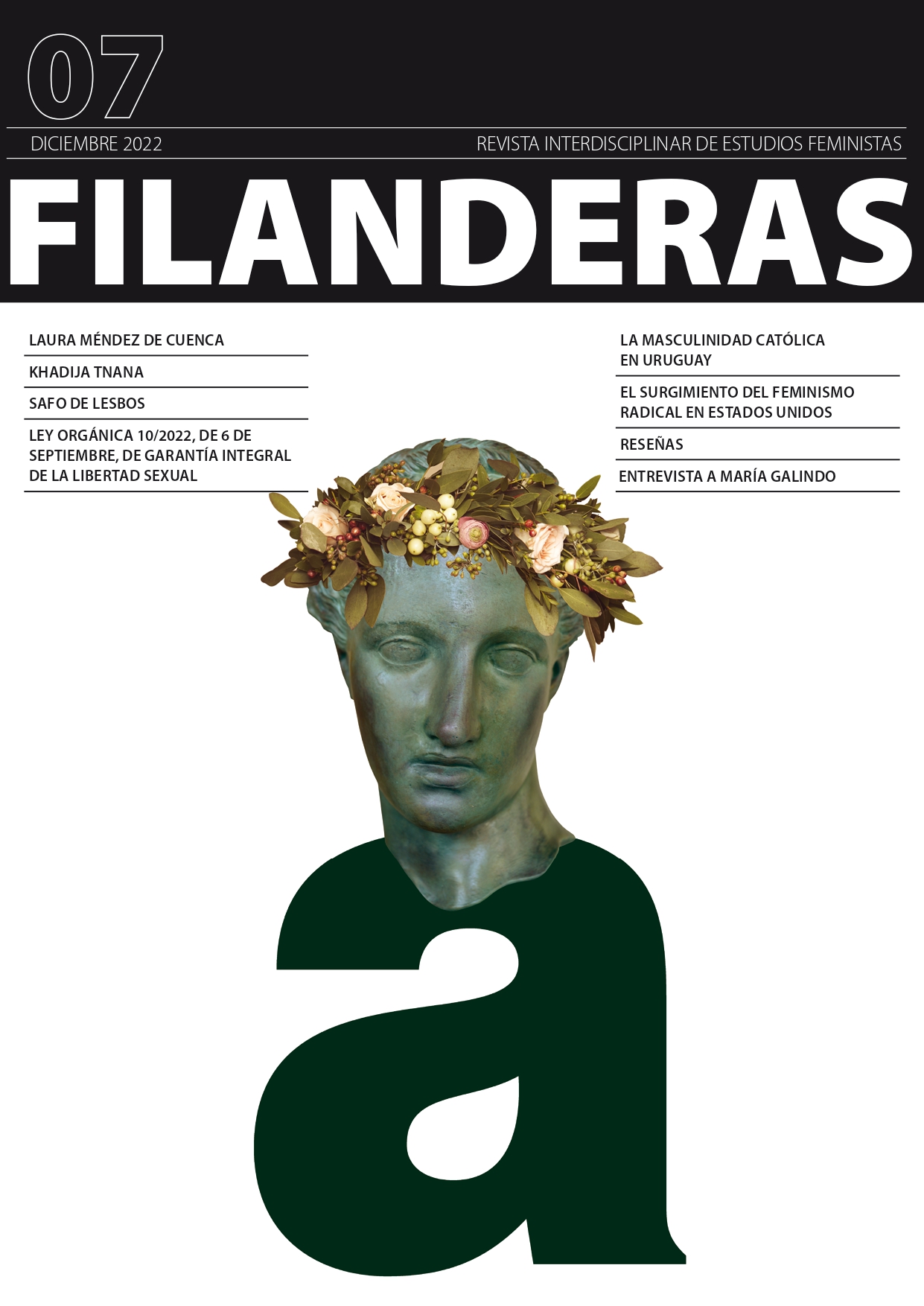Safo of Lesbos. Some questions about the historiographic myth from a gender perspective
DOI:
https://doi.org/10.26754/ojs_filanderas/fil.202278571Keywords:
Sappho, Gender Studies, Historiography, Feminism, Greek Ancient HistoryAbstract
This article pretends to reflect some historiographical myths related to Sapho of Lesbos, the iconic poetess of Greek archaism. Her great fame converted her into a model (and sometimes antimodel) of behavior since Antiquity. Nevertheless, not much data about her life has been conserved. Since the beginning of historiographic studies, scholars proposed theories based on opinions about the scarce data of her private life. In this article, several topics that have generated controversy are discussed. All of them were difficult to accept for conservative minds: orientalism as a way to explain female visibility, Sappho being considered the first lesbian in History and finally the education of maidens in Antiquity. All of them try to explain why a woman could be famous, logically using their perception of women’s roles. The methodological approach will be historiography critic from a Gender perspective to present a global vision. It seems clear that all societies have created a personal version of Sappho related to her misconceptions about women and their ideal behaviors.
Display downloads
Downloads
Published
Issue
Section
License
Copyright (c) 2022 Elena Duce Pastor

This work is licensed under a Creative Commons Attribution-NonCommercial 4.0 International License.
Authors who publish in this journal agree to the following terms:
They retain authorship rights and grant the journal the right to be the first publication of the work as well as license it under a Creative Commons Attribution-BY-NonCommercial 4.0 International that allows others to share the work without any commercial purpose and an acknowledgement of authorship of the work and initial publication in this journal. As the Creative Commons standards define, "this license enables reusers to distribute, remix, adapt, and build upon the material in any medium or format for noncommercial purposes only, and only so long as attribution is given to the creator. CC BY-NC includes the following elements:
- BY: credit must be given to the creator.
- NC: Only noncommercial uses of the work are permitted".





